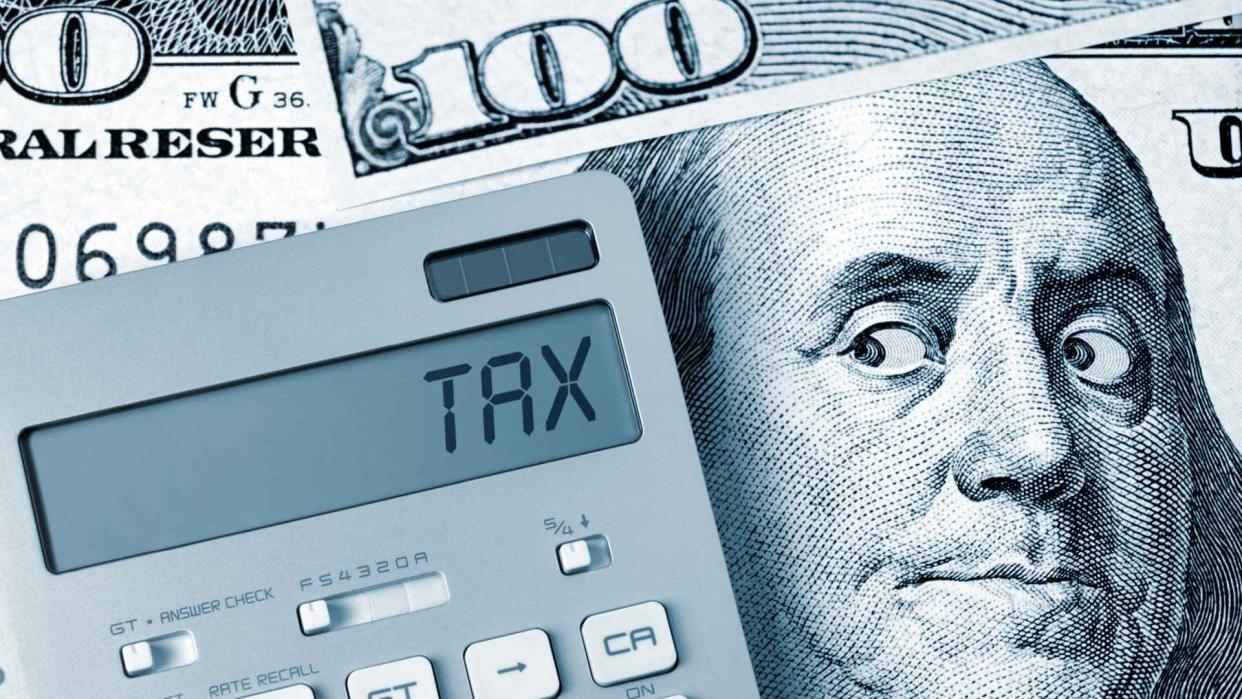How a Biden Presidency Could Impact Tax Policies for the Rich

This election year is a fierce fight between current President Joe Biden and former President Donald Trump for the White House. The two take very different stands on policies for the rich.
Read Next: How Much Is President Joe Biden Worth As He Seeks Reelection?
Find Out: 4 Genius Things All Wealthy People Do With Their Money
While President Trump signed the 2017 Tax Cuts and Jobs Act into law, which brought big changes to the tax code by reforming individual and business taxes that the super-wealthy benefited from, President Biden wants to eliminate tax breaks for the wealthy and help the middle class.
Here’s how a second term for the Democratic president could impact tax policies for the rich.
Billionaires Could Pay More Taxes
In his March State of the Union address, President Biden emphasized taxing the rich and helping the middle class.
In his speech, Biden noted the average federal tax rate for billionaires is currently 8.2%. “No billionaire should pay a lower federal tax rate than a teacher, a sanitation worker, or a nurse,” he said. “I proposed a minimum tax for billionaires of 25%.”
Biden will likely continue pursuing these policies if he wins reelection.
Discover More: 6 Reasons the Poor Stay Poor and Middle Class Doesn’t Become Wealthy
The Tax Cuts and Jobs Act Could Expire
During the address, President Biden also took aim at President Trump for the Tax Cuts and Jobs Acts. When discussing the legislation, Biden said that policies within it “added more to the national debt than any presidential term in American history.”
The Tax Cuts and Jobs Act is set to expire next year, and Biden has no plans to stop it from expiring. “And guess what? I hope to be president because it expires, it’s going to stay expired,” he said in a speech at Union Station earlier this year.
That would mean the uber-wealthy would no longer benefit from the policies in the Tax Cuts and Jobs Act. “The 2017 tax law benefited high-income households … Extending the Trump tax cuts that expire at the end of 2025 — namely, the law’s individual income and estate tax provisions — would provide further windfall benefits to high-income households,” according to the Center on Budget and Policy Priorities, a nonpartisan research and policy institute.
So if Biden retains control of the White House, it’s likely that he’ll let these policies expire.
Capital Gains Taxes Could Go Up
Currently, the capital gains tax is “no higher than 15% for most individuals,” per the IRS, but that could change with a second term for President Biden.
Biden has proposed a hike in capital gains taxes, which would likely target wealthy individuals. In the administration’s report “General Explanations of the Administration’s Fiscal Year 2025 Revenue Proposals,” the new tax rates on capital gains are detailed. For those with a taxable income of more than $1 million, long-term capital gains and dividends would be taxed at ordinary rates, with 37% being the highest rate, according to the report.
However, there are other proposals that could impact that rate. “A separate proposal would first raise the top ordinary rate to 39.6 percent … An additional proposal would increase the net investment income tax rate by 1.2 percentage points above $400,000 … Together, the proposals would increase the top marginal rate on long-term capital gains and qualified dividends to 44.6 percent,” the report stated.
So if Biden is reelected, it’s likely he’ll continue pursuing these proposals to increase the rates.
More From GOBankingRates
This article originally appeared on GOBankingRates.com: How a Biden Presidency Could Impact Tax Policies for the Rich
